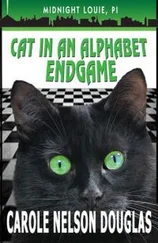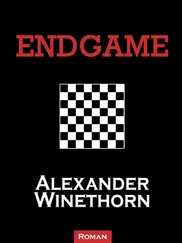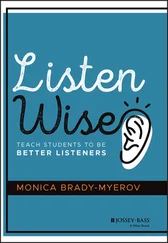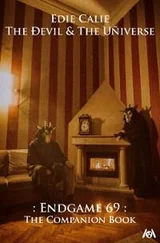Was this the same Bobby Fischer who supposedly knew only chess, the sullen high school dropout from Brooklyn? He looked something like the Bobby Fischer of decades past, the intelligent eyes, the slight bumpish imperfection on the right side of the nose, the broad shoulders, the loping gait, but this Bobby Fischer was harder, a balding man with a slight paunch, a man at the far end of middle age who looked as if he’d known if not tragedy then at least major reversals. Something about his aura reminded an observer of an ill-treated dog just escaped from his captors. There was a lump the size of a large fingertip above his right eyebrow. He rarely smiled, perhaps because of embarrassment over his broken and missing teeth; he never looked at himself in a mirror because he disapproved of what his appearance had become. The real inconsistency, however, was that this Bobby Fischer—the great chess player who some thought was a cultural dolt, a man who supposedly knew nothing of life except a game (“Fischer came close to being a moron,” Martin Gardner, a writer for Scientific American , seriously opined)—was reading a philosophical treatise!
Many people who haven’t been formally educated awaken later in life with a desire to progress and deepen their view of the world, to go back to school or self-educate themselves. Bobby joined their ranks out of an essential self-awareness. “Larry Evans once said,” Bobby commented, “that I didn’t know anything about life; all I knew was chess, and he was right!” In a somewhat different mood, Bobby also said at one point that he felt like giving up chess from time to time, “but what else would I do?”
Bobby’s lack of traditional institutional education was well known and continually reported in the press, but what wasn’t common knowledge was that after he won the World Championship at age twenty-nine, he began a systemized regimen of study outside chess. History, government, religion, politics, and current events became his greatest interests, and during the thirty-three-year interval from his first Reykjavik stay to his second he spent most of his spare time reading and amassing knowledge.
Several Icelanders indicated that there was nothing he couldn’t discuss in depth. He could talk about such subjects as the French Revolution and the Siberian gulags, the philosophy of Nietzsche, and the discourses of Disraeli.
After spending close to two hours eating and reading at Anestu Grösum, and finishing off two helpings of skyr with redundant whipped cream, Bobby would invariably walk to Bókin. It was a book lover’s dream and delightfully eccentric: A stuffed monkey doll with spectacles sat outside the store with a book in its lap; there were thousands of used books, mainly in Icelandic but a great portion in English, German, and Danish, some on subjects so arcane that only a few could understand or appreciate them, such as the mating habits of the puffin—the national bird—or an analysis of the inscriptions on the churches of Heidelberg. The aisles of bookshelves meandered all over the store, and in the center of the room there was a huge hillock of books more than five feet tall, haphazardly thrown there and cascading to the floor because there was simply no room to put them anywhere else. There were fewer than a dozen chess books for sale.
Each day Bobby collected his mail at the store, kept for him behind the counter. He’d say a few words to the store’s owner, Bragi Kristjonsson, and head to his spot at the store’s farthest reaches, at the end of one of the not quite three-foot-wide corridors, with low stacks of books and old copies of National Geographic lining the edges of the aisle. Perhaps as a gesture of respect toward his famous customer, Bragi placed a battered chair at the end of the corridor, and Bobby sat there next to a small window that looked out at a tattoo parlor (which he disapproved of) across the street, reading and dreaming—and sometimes even falling asleep—often to closing time. It was his home. “It’s good to be free,” he wrote to a friend.
The greatest portion of Bobby’s reading was devoted to history, everything from The Rise and Fall of the Roman Empire to The Rise and Fall of the Third Reich; he pored over books on battles from ancient Greece to World War II and conspiracy theories such as Hitler’s Secret Bankers: How Switzerland Profited from Nazi Germany , as well as anti-Semitic tracts such as Jewish Ritual Murder . It’s possible that he was trying to find his own place in history through his voracious reading, but it was more likely a search for understanding, an attempt to comprehend his complicated gestalt—“the whole catastrophe,” as the fictional Zorba the Greek perceptively described himself.
Just as Fischer was becoming settled in Iceland, hardly before he had a chance to unpack his bags (which held few possessions: only what clothes and books he owned in Japan), an impending match with his friend Pal Benko was suddenly announced by Janos Kubat, the man who’d helped arrange the Fischer-Spassky match in 1992. Kubat issued the announcement to RIA, the Russian News Agency, and said the match would take place in the town of Magyarkanizsa on the border of Hungary and Serbia, where Bobby had lived for several months in 1992. Kubat claimed that a financial sponsor had been found and that the venue was already chosen. There was only one problem: Bobby knew nothing of the match. He’d had a falling-out with Kubat in August of 1993 over a moral issue, according to Bobby, and they weren’t on speaking terms. Most important, he had no intention of leaving Iceland, because of the threat of extradition to the United States.
Two weeks after being greeted as a hero in Iceland, and after stating that he just wanted to live in peace, Bobby found that his troubles weren’t over. He received a letter dated April 7, 2005, from the Union Bank of Switzerland to the effect that the institution was closing his account. UBS was holding some $3 million of his assets, originally deposited there in 1992, and wanted to know to which bank in Iceland Bobby wished his investments transferred.
Bobby had no intention of placing his money in an Icelandic bank (despite being able to receive a potentially higher interest rate there) and demanded to know what was going on. While he and the bank were exchanging intransigent letters, he gave an interview to Morgunbladid in which he said: “Possibly a third party has had something to do with this as a part of further attacks against me. In fact, I don’t know what the directors of UBS are thinking but it seems quite clear that the bank is afraid to keep me as a customer. This is absolutely vicious, illegal and unfair of the UBS.” He threatened a lawsuit. The third party he presumed responsible was the United States government.
Bobby turned to Einar Einarsson for advice. Not only was Einarsson a member of the Icelandic committee that had helped secure Bobby’s release from imprisonment, he’d also been a leading banker before introducing the Visa credit card to Iceland. Careful and methodical, Einarsson began to coach Bobby through an exchange of long, technical e-mails with UBS. Bobby was impatient. He didn’t have a chess tournament to discharge his competitive energy, so he vented his anger at the Swiss bank, which he insisted was run by Jews. This was a different kind of opponent, though, and Bobby hadn’t mastered the techniques of dueling with international financial institutions. So he lost. Eventually, UBS liquidated all of his assets and transferred them to Landsbanki in Reykjavik. Bobby claimed that he lost a sizable amount in the transaction.
In retrospect, it seems quite clear what UBS was doing. Many of its fifty-two thousand accounts were offshore holdings, secretly deposited—many without names, just numbers—as tax havens for American citizens. In Bobby’s case, he was broadcasting, some might say boasting —without cover—that he had $3 million at UBS (he may have even given his account number over the air), and since he’d paid no income tax on it, or on any of his other income since 1977, the U.S. Internal Revenue Service was making its displeasure known to UBS.
Читать дальше
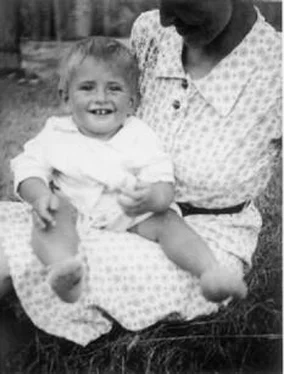

![Антон Текшин - EndGame [СИ]](/books/394477/anton-tekshin-endgame-si-thumb.webp)
